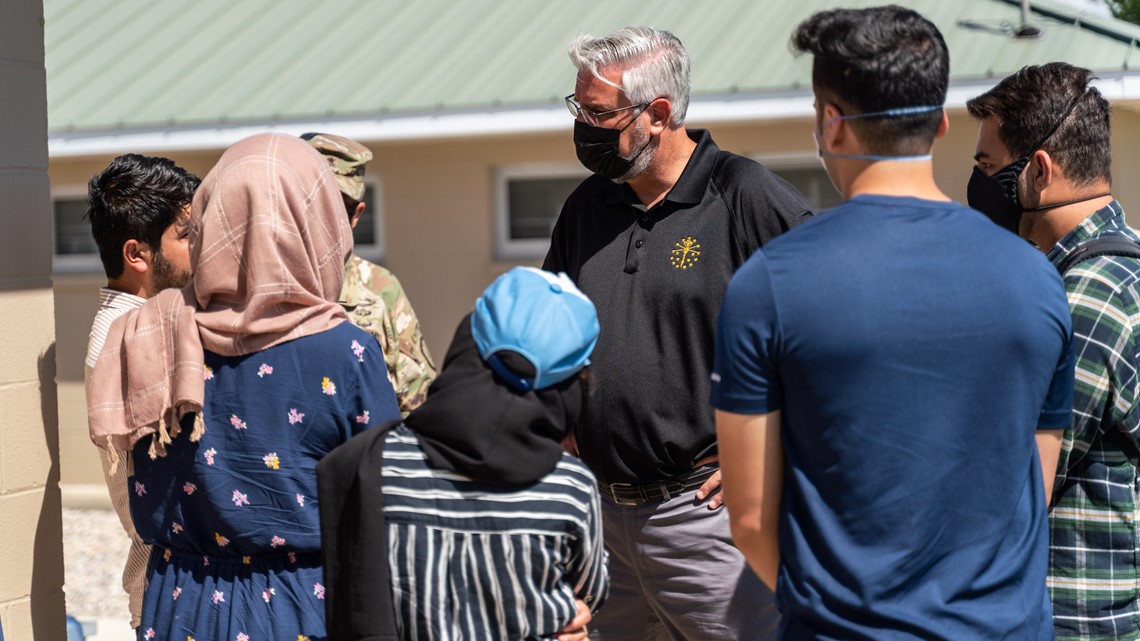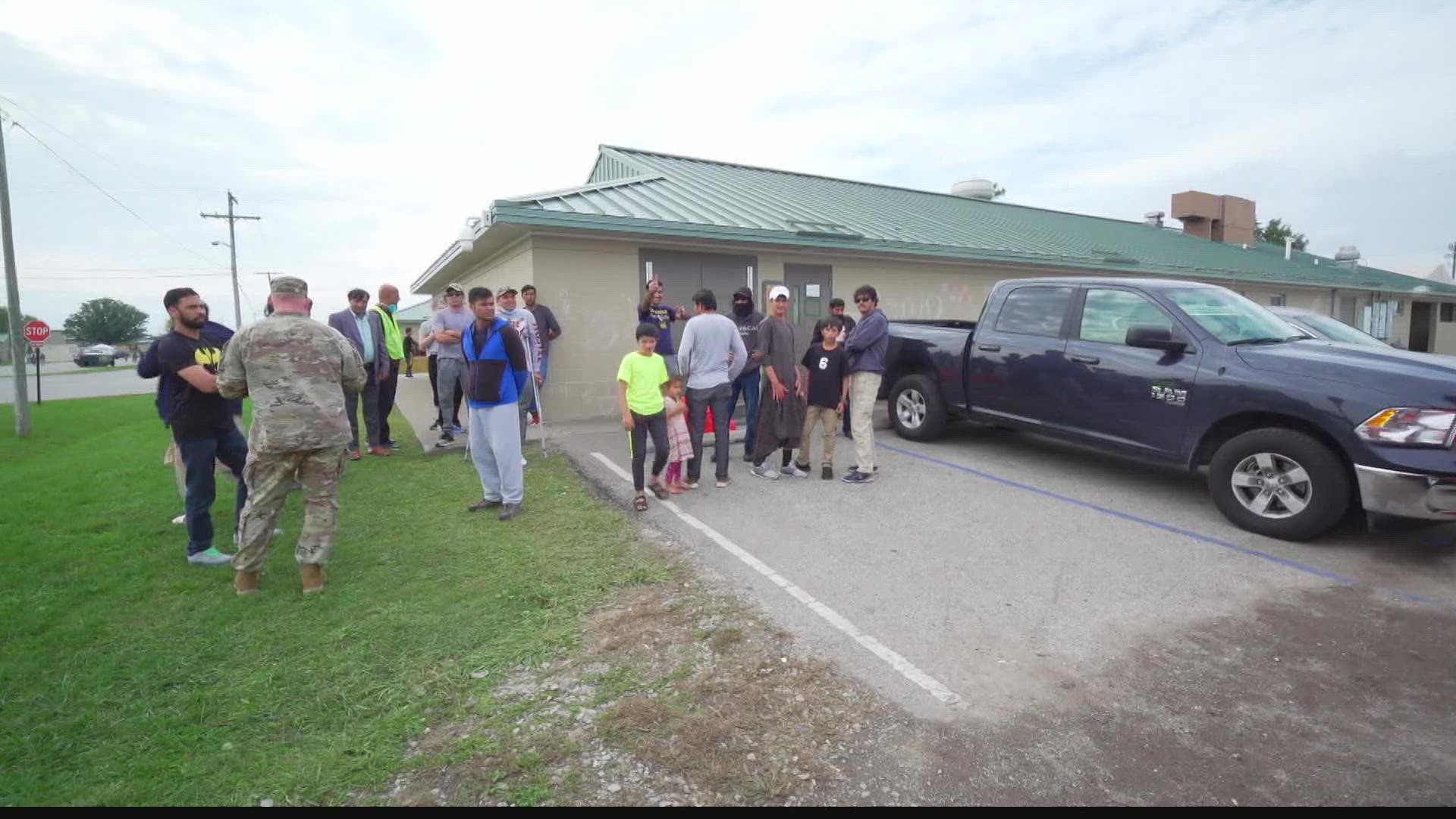JOHNSON COUNTY, Ind. — State and federal leaders gave an update Nov. 23 on "Operation Welcome Allies," the mission to help Afghan evacuees at Camp Atterbury resettle in the United States.
It's a mission to take people from chaos to calm and officials said the transition process is making major progress.
By the end of the week, half of the 7,200 Afghans who arrived in Indiana in September will have left the base.
By the end of the year, officials hope to have all resettled, starting new lives in America.
That includes Nahid Sharifi, who shared her emotional journey at Tuesday's news conference.
"I came to the United States on the 5th of September and my journey was long and scary," she said.
Separated from her mother, brother and sister during the chaotic evacuation of Afghanistan, Sharifi described the fear she felt for her family.
"I was terrified where they were until I hear from them ten days (later)," Sharifi said, tearfully.
But she said her experience since then, joining 7,200 evacuees at Camp Atterbury, has been filled with support.
"People of the United States have a heart of gold. Thank you so much for everything," she said. "Especially the Army and Department of State – they've behaved very patiently and justly with Afghan people."
Federal officials call our state a leader out of the eight safe havens across the country.
"Increasingly, I'm hearing from those who've seen other bases, other safe havens and especially those who've come here, are referring to Indiana as the gold standard," said Christine Elder, U.S. Ambassador with the Department of State.
About 50% of the Afghans temporarily housed at Atterbury will have permanent homes by the end of the week, with the goal of having everyone resettled by the end of the year.
"It's incredible work. It's unprecedented work both in scale and in number of what's happening," Elder said.
"I hope we're an example of a place that comes together in times of great need and shared responsibility," Gov. Eric Holcomb said. "As far away as where they come from, they're here at home in Indiana."


Many Afghans are staying in Indiana and becoming new Hoosiers, finding homes from Indy to Bloomington, Muncie to South Bend.
Resettlement is a four-phase plan, explained Cole Varga, executive director of Exodus Refugee Immigration.
And it's all-encompassing, including housing, schools, furniture, food, social security, health care, child care and finding a fulfilling job.
That is one of the keys, explained Fred Payne, executive director of the Department of Workforce Development.
Some Afghans are doctors and engineers. Others may need more help getting computer and English skills. Each evacuee's skills are identified and the state works individually to find a good employment path forward.
What helps?
Indiana is definitely hiring.
"We want them to not only find a job, but keep a job. We've engaged with over 150 employers who've told us collectively there are 4,000 open job positions in these communities," Payne said. "We're doing everything from virtual job fairs and making introductions to training and skilling people up for the specific roles the employers have available for them."
The blueprint for building new lives also includes English classes, "life" lessons about how to live and work in America, but also celebrating and keeping their home culture.
Donations from the public, officials said, have been generous and extremely helpful.
The Department of State now has two new ways for people to help: Welcome.us, where Americans can support Afghans through a non-profit organization and also, what's called the Sponsor Circle Program.
It lets groups of at least five people directly support Afghan families through time, money and resources. People can apply to form a sponsor circle at sponsorcircles.org.
There's also a commitment by resettlement organizations, like Exodus, to long-term transitions, to ensure our new neighbors find lifelong success.
"It could be six months for some. It could be five years with others and we'll be there all along the way if people need to come back and ask us for help," Varga explained.
"This is proof positive that when people of all walks come together, what good can come out of it," Holcomb said.
Nahid Sharifi's new home will be in Bloomington.
She already has a master's degree, was working on her Ph.D prior to the evacuation and now plans to finish at Indiana University.
She has also reunited with her husband and said she's ready to embrace new opportunities, along with hundreds of other Afghans, as Hoosiers.
"I'm very excited to start my new life in Indiana, and where I hope that to continue my study," she said. "I hope that I can make the world around me better place for others."

